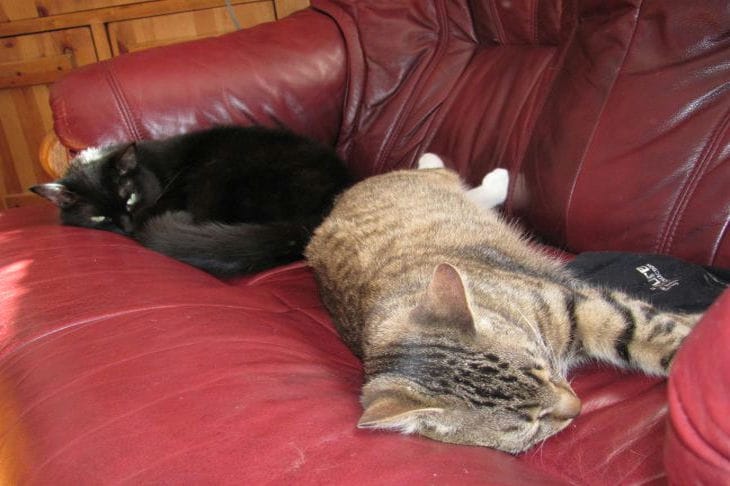Why Do Cats Twitch in Their Sleep and When Is It a Health Warning Sign?
It's funny to watch a cat tremble with its entire body, move its paws, meow and even growl sometimes in its sleep. But is this condition always safe for your pet?
Everyone dreams
People have long assumed that animals dream. But now scientists have proven it. Experiments have shown that our smaller brothers, just like humans, have active and deep sleep. And the brain processes information received during wakefulness in the same way, generating dreams.
In a dream, a cat relives the experience it has had, for example, when it fought with another cat, was chased by a dog, or hunted a bird, or was frightened by a loud sound.
When a cat experiences a traumatic experience, it will have a nightmare. It may growl, meow, or shake its entire body.
Should you wake up your pet if it is having a nightmare? You shouldn't do this, as the animal will not immediately understand where the dream is and where reality is. Due to disorientation, the pet may attack a person or another pet, simply confusing it with the monster from the dream.

The greatest activity during sleep is observed in animals that have experienced a stressful situation - moving, repairs, a visit to the vet, a change of owner, meeting a strange dog. Strong activity, such as playing, also provokes violent dreams, especially in kittens.
When your pet is in danger
Light twitching during sleep caused by dreams is completely harmless. But it is a completely different matter if these are convulsions. It is easy to distinguish them. During convulsions, muscles contract, the animal experiences paroxysmal convulsions. The limbs can be so twisted that they acquire an unnatural shape, it is impossible to straighten them. During a severe attack, the animal can scream in pain, foam at the mouth, and sometimes involuntary urination is observed. The pupils dilate, the whiskers are pressed to the muzzle.
All these symptoms signal serious health problems, so a visit to the vet cannot be postponed. Convulsions are symptoms that signal epilepsy, brain tumors, poisoning, cardiovascular problems, and some other diseases. If the convulsions are not very strong, this may be a sign of a lack of vitamins and microelements.
To save your pet, you need to contact specialists immediately. Self-diagnosis and treatment are extremely dangerous. Even a specialist can only make a diagnosis after all the tests have been done.
